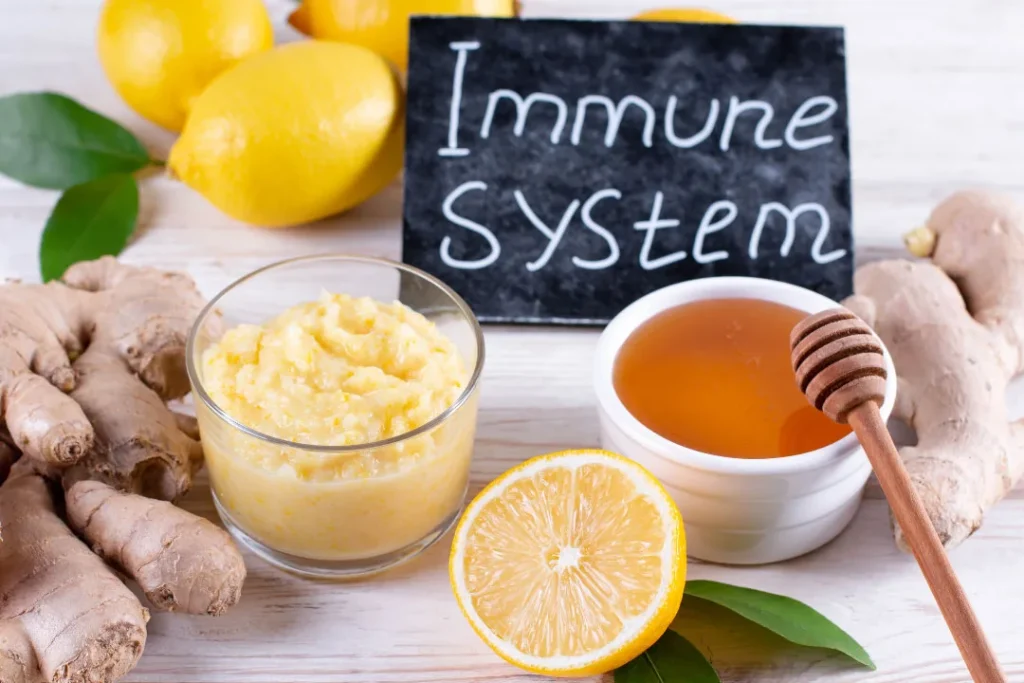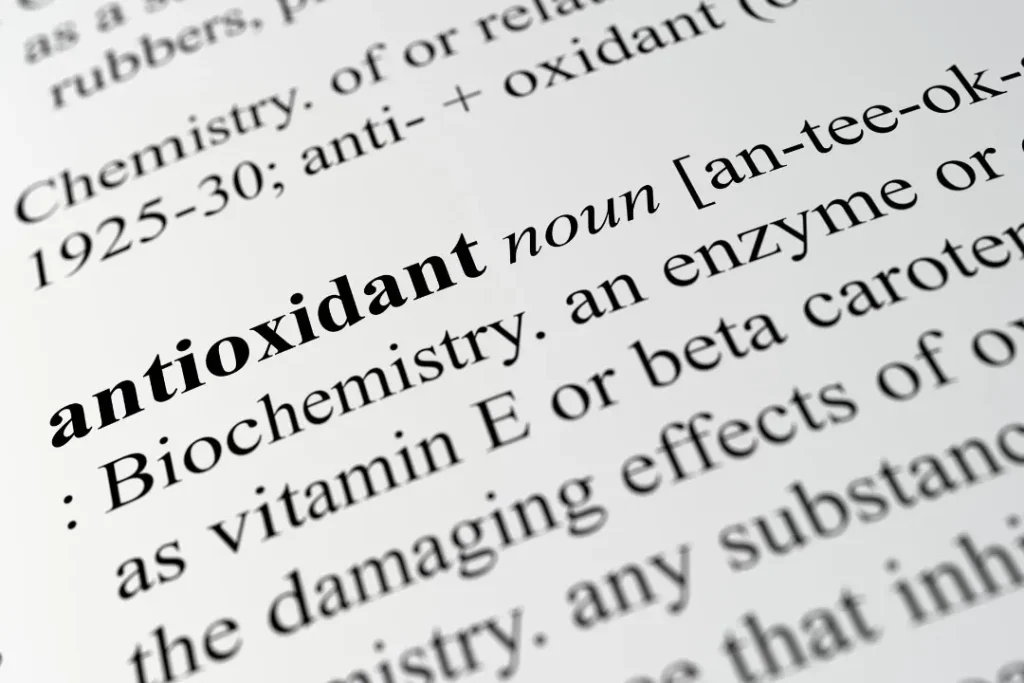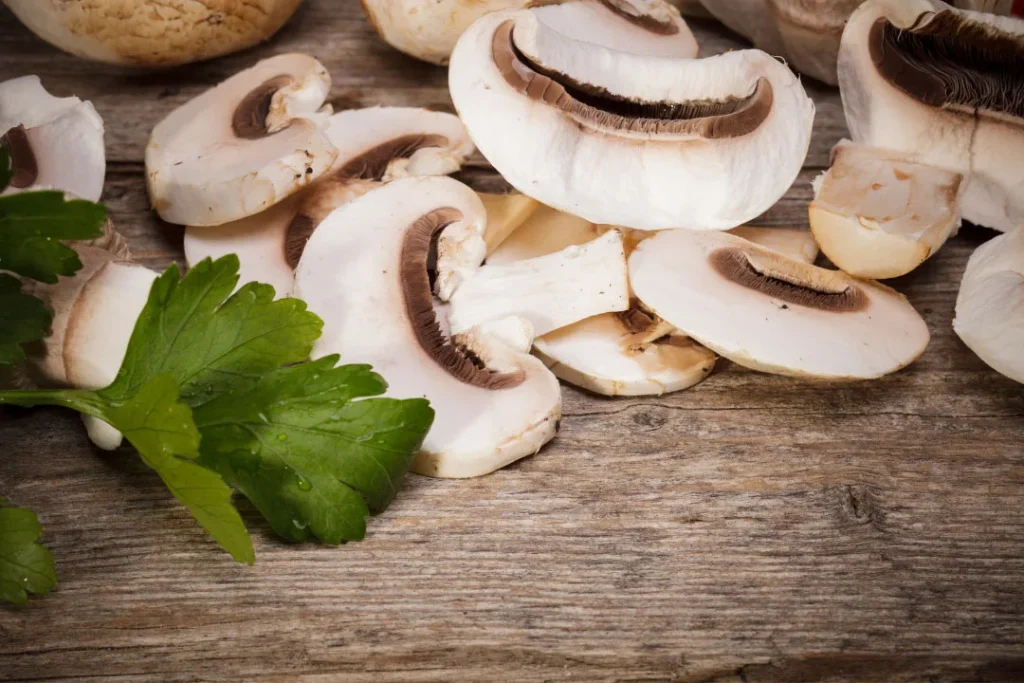Coriolus versicolor, also known as Coriolus mushroom, turkey tail, or cloud mushroom, is a fungus species that has piqued the curiosity of scientists due to its powerful bioactive chemicals and possible medicinal effects. This mushroom is adored for its unusual fan-shaped, multicolored morphology, which resembles a turkey’s tail. It is mostly found in temperate woodlands. The mushroom’s possible health advantages fully encapsulate the core of its relevance in the realm of natural health therapies.
You May Also Like:
What Are the Best Mushrooms for Brain Health? Here Are the Facts.
5 Things to Consider When Choosing the Best Mushrooms for Mental Health
Coriolus Mushroom: Benefits, Dosage, Side Effects, Drug Interactions, and Other Important Information is an original (NootropicsPlanet) article.
Nature of Coriolus Mushroom
Coriolus mushroom, which has been utilized for centuries in Asian civilizations for its medicinal benefits, is a rich source of polysaccharides such as polysaccharide peptide (PSP) and polysaccharide-k (PSK). Because of their immunomodulatory, antiviral, and anticancer effects, these bioactive chemicals have been the topic of substantial investigation.
PSP and PSK are polysaccharides with a beta-glucan backbone that have a high molecular weight. They engage with biological receptors on immune system cells, triggering a series of reactions that boost immunity. Beta-glucans are a form of dietary fiber that has been linked to lower cholesterol levels and improved heart health. They also have prebiotic qualities, which help to feed good gut flora and promote a healthy gut environment.

Health Benefits of Coriolus Mushroom
Coriolus mushroom’s health advantages are mostly due to its polysaccharides, which have a variety of physiological effects. The immunomodulatory qualities of the mushroom have been used in cancer, where PSK is used as an adjuvant to chemotherapy in Japan. PSK is hypothesized to boost cancer survival chances by strengthening the body’s immunological response.
The mushroom has been examined for its antiviral effects in addition to its involvement in cancer care. Coriolus mushroom extracts have been shown in studies to limit the reproduction of viruses such as Human Papillomavirus (HPV) and Hepatitis C, providing a viable therapeutic strategy in the management of these illnesses.
Furthermore, the mushroom’s antioxidant qualities have been demonstrated to lower oxidative stress, which is important in the prevention of chronic illnesses. The mushroom’s phenolic components and flavonoids contribute to its antioxidant action, lowering free radical damage and improving general well-being.

Chemistry of Coriolus Mushroom
The chemical composition of the coriolus mushroom includes a wide range of bioactive chemicals, notably polysaccharides such as Polysaccharide-K (PSK) and Polysaccharide-Peptide (PSP), as well as phenolic compounds, flavonoids, and triterpenoids.
PSK, commonly known as Krestin, is a protein-bound polysaccharide composed of a beta-glucan-1,4 main chain and side chains -1,3 and -1,6. PSP is a structurally unique polysaccharide with a molecular weight of about 100,000 daltons that is composed of a protein moiety and a polysaccharide moiety. PSP comprises monosaccharides such as mannose, xylose, galactose, and glucose in its polysaccharide portion, whereas the protein portion contains aspartic and glutamic acid.
Coriolus mushroom also contains phenolic compounds and flavonoids, which contribute to its bioactive qualities, particularly its antioxidant activity. They function by neutralizing damaging free radicals, lowering oxidative stress and perhaps avoiding chronic disease.

Physiological Mechanisms of Action
The coriolus mushroom’s physiological mechanisms of action are mostly ascribed to its polysaccharides, PSK and PSP, which have a range of impacts on the immune system.
Immunomodulation is one of the important processes. PSK and PSP communicate with immune cells such as macrophages, T cells, and natural killer cells via beta-glucan receptors on their cell surfaces. This interaction sets off an immunological cascade that increases the generation and activity of these immune cells, boosting the body’s immune response. They are known to promote the production of cytokines such as interleukin-1, interleukin-2, and tumor necrosis factor-alpha, all of which play important roles in immunological responses.
PSK has also been shown to have anticancer effects via several mechanisms. It has been demonstrated that it inhibits tumor development by triggering apoptosis, or programmed cell death. It also inhibits angiogenesis, the process by which new blood vessels are formed that cancers need to grow and spread.
Furthermore, polysaccharides have prebiotic effects, boosting the growth of good gut bacteria, which is important for maintaining a healthy gut microbiota and supporting immunological health.
Overall, the physiological mechanisms of action of coriolus mushroom highlight its potential therapeutic advantages, particularly in immune function enhancement and cancer prevention. However, more research is needed to fully understand the complicated pathways and potential consequences of these acts.

Optimal Dosage of Coriolus Mushroom
The recommended dose of coriolus mushroom is dependent on a number of factors, including the individual’s age, health situation, and intended usage of the supplement. A daily intake of 1-3 grams of dry mushroom or 600-1800 mg of extract is recommended for healthy individuals as a general guideline. Higher dosages, often ranging from 3-9 grams per day, may be required for patients taking the mushroom as an adjuvant to cancer treatment. These dosages have been shown in scientific research to be safe, but it is always best to check with a healthcare expert before beginning any new supplement program.
Side Effects of Coriolus Mushroom
Coriolus mushroom is typically well-tolerated, with little negative effects noted. At larger doses, some people may have gastrointestinal problems such as bloating, gas, and darker stools. Individuals may notice skin darkening on rare occasions, especially if the supplement is used for an extended length of time. However, the majority of negative effects are minor and disappear as the body adjusts to the supplement.
Potential Substance Interactions
Though coriolus mushroom is typically harmless, it may interact certain drugs. Because of its immunostimulatory properties, it may boost the immune response when combined with other immunomodulatory drugs, potentially leading to overstimulation. Furthermore, its anticoagulant characteristics may enhance the effects of anticoagulant medications, increasing the risk of bleeding. Individuals using these drugs should take caution and check with their healthcare professional before using coriolus mushroom.
Best Responsible Use
The coriolus mushroom has a potential medicinal profile, which is supported by its powerful bioactive chemicals. Its health advantages, notably in the treatment of cancer and viral infections, have been well researched. While it is typically safe, it is crucial to examine the potential adverse effects and interactions, especially in those who have pre-existing health issues or are taking several drugs. As with any supplements, the optimal and most responsible usage of coriolus mushroom requires a personalized strategy that takes into account the individual’s general health state, the intended therapeutic use, and potential hazards. More study into its possible applications might add to the expanding body of information on the health advantages of functional foods and nutraceuticals.
Coriolus Mushroom:
Conclusion
More research is currently being conducted to understand the effects of coriolus mushroom on cancer cells and viral infections. Meanwhile, incorporating this mushroom into your diet can reduce the likelihood of cancerous tumor growth and prevent the exacerbation of oxidative stress. When using coriolus mushroom as a supplementary cancer treatment, you should only take high doses in accordance with guidelines from your healthcare provider, as interactions with drugs like anticoagulants can cause excessive bleeding and become more harmful that helpful. Natural cancer solutions and immune boosters are gaining traction, and getting a head start on consuming holistic remedies like coriolus mushroom may allow any future treatments to perform even better.
References:
- “Coriolus versicolor mushroom polysaccharides exert immunoregulatory effects on mouse B cells via membrane Ig and TLR-4 to activate the MAPK and NF-κB signaling pathways.” Retrieved from:https://molecular-cancer.biomedcentral.com/articles/10.1186/s12943-015-0321-5
- “Antioxidants and Cancer Prevention – Role of Coriolus Versicolor.” Retrieved from:https://www.cancer.gov/about-cancer/causes-prevention/risk/diet/antioxidants-fact-sheet
- “Turkey Tail Mushroom, the Disease-Fighting, Immune-Boosting Fungus.” Retrieved from:https://draxe.com/nutrition/mushrooms/turkey-tail-mushroom/
Important Note: The information contained in this article is for general informational purposes only, and should not be construed as health or medical advice, nor is it intended to diagnose, prevent, treat, or cure any disease or health condition. Before embarking on any diet, fitness regimen, or program of nutritional supplementation, it is advisable to consult your healthcare professional in order to determine its safety and probable efficacy in terms of your individual state of health.
Regarding Nutritional Supplements Or Other Non-Prescription Health Products: If any nutritional supplements or other non-prescription health products are mentioned in the foregoing article, any claims or statements made about them have not been evaluated by the U.S. Food and Drug Administration, and such nutritional supplements or other health products are not intended to diagnose, treat, cure, or prevent any disease.


